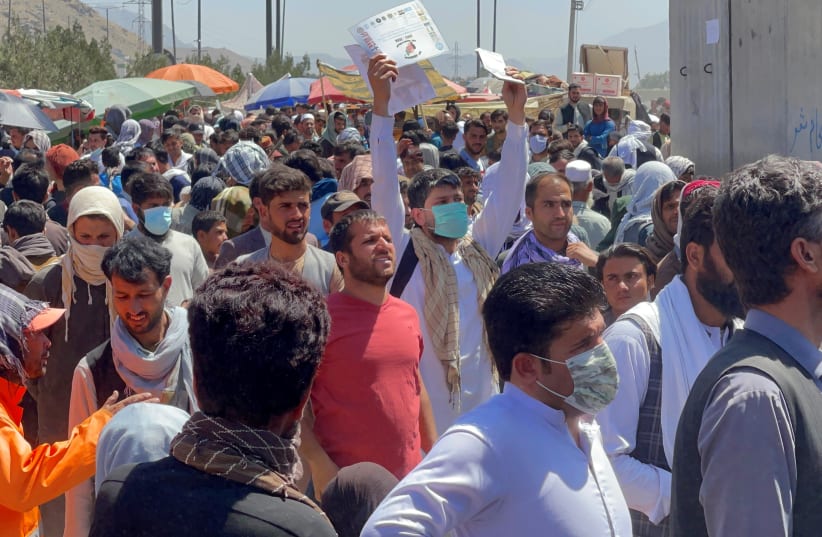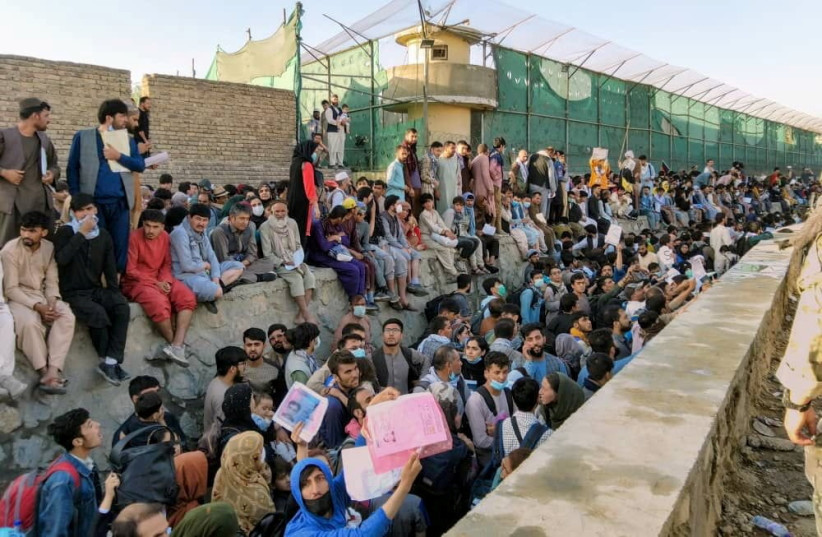In the final days of the West’s 20-year war in Afghanistan, a small controversy erupted after it turned out that some Western charities had been involved in supporting animals in Afghanistan.
They had tried to replicate the animal-rescue and -support systems that are more common in the US or the UK, where pets, rescue dogs and other animals are highly prized.
Surveys show that in some Western countries animals are considered equal to, or even more important than, people.
UK Defense Secretary Ben Wallace was quoted as saying, “As for the animals... it is just not going to be the case that I will prioritize them over the men, women and children we see in desperate need at the gate.”
While activists, celebrities and others in the UK desperately tweeted and sent angry messages to people regarding the need to rescue animals, others were wondering why the animals were getting more attention than tens of thousands of people, or even the local Afghans who had worked with the animals.
Charities and groups in the UK tend to be litigious and have been known to sue journalists and newspapers that mention them. But the overall question raised in the last days of the Kabul evacuation was about the policies that underpinned the focus on several white Westerners who were involved in caring for animals and the lack of attention for thousands of Afghans who had been working with Westerners for years.
Charter planes had been arranged to get the animals out for several groups that were involved, according to reports. In messages that were sent to journalists for review, the writers demanded that the US State Department needed to help with “overflight” notices, or what some called a “dip” notice, the reports said.
There was no explanation given on social media for what these notices were, and it appeared that a coordinated social-media campaign had been put into place to push these narratives. Reports indicated that in at least one case, a charter flight was cleared to bring out dogs and cats.
According to its supporters, animal rescues are done with private donations, and the animals fly in the hold, or cargo section of an aircraft, so they would not displace humans. That is a debatable question because resources have to be allocated to bring the animals to the airport while leaving behind the local staff, and runway space goes to the aircraft.
It also raises questions why Westerners were paying money to bring out animals in private or chartered aircraft, while people were left behind.
That Western countries have different priorities than the countries they may be invading, bombing or fighting in is not a surprise.
Germany shipped out 22,000 liters of beer from Afghanistan. Once again, critics might say the beer doesn’t displace people. But beer does displace priceless heirlooms of Afghan families who might prefer that they can bring out some items for their families, rather than the easily replaceable German beer.
This appears to go to the heart of a larger question about the Western, mostly NATO, role in Afghanistan over two decades. While the US went into Afghanistan to kill or capture Osama bin Laden, the conflict became a mission creep that led to pushing for democracy and women’s rights, and trillions of dollars apparently were wasted, squandered or stolen. There are now questions in the US Congress about where that money went.
There are other questions about what it means for a country to go into another country with its military, fight there for 20 years, hire local staff and then evacuate animals and beer and other things, but leave behind locals who trusted and relied on the foreigners.
Generations of Afghans were raised working with the US and the UK. But no matter the time they may have devoted or risks they took, it appears that at the end, many of them were of less interest to some Western activists than random dogs and cats in Afghanistan.
It’s not even clear if the Afghan refugees are being treated as well as the dogs and the cats. That raises questions about whether Western countries should be invading places such as Afghanistan, giving false hopes and then putting a few animals in the hold of an airplane and flying back home.
Those following the evacuation wondered how charter planes could even get in to evacuate animals once the military had stopped letting in charters. They also wondered about the underlying questions of racism that appear to underpin those who advocated evacuating Westerners and animals, but didn’t seem to put the same amount of effort into evacuating people.

